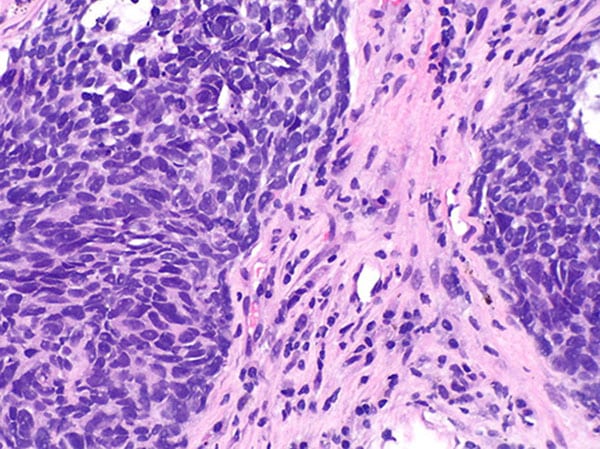Full Approval for a Targeted Therapy in Lung Cancer
The FDA approved the kinase inhibitor capmatinib for lung cancers harboring a certain mutation in the protein MET.
The U.S. Food and Drug Administration (FDA) has granted full approval to capmatinib (Tabrecta) for the treatment of adult patients with metastatic non-small cell lung cancer (NSCLC) whose tumors have a mutation involving the skipping of exon 14 in the protein MET.
Capmatinib is part of a class of drugs called kinase inhibitors, which block the function of certain signaling molecules within the cell. Capmatinib inhibits MET, a protein that can activate several tumor-promoting pathways in cancers such as NSCLC. Exon 14 is a portion of the MET gene encoding a regulatory region that keeps MET signaling in check. Certain mutations cause this region to be skipped during gene expression, resulting in overactive MET.

The FDA previously granted accelerated approval to capmatinib for use in this patient population, meaning that continued approval would be contingent upon further trials. Evidence supporting the full approval was demonstrated in an expansion of the multicenter, non-randomized, open-label, multi-cohort GEOMETRY mono-1 clinical trial. The expansion cohort included 63 additional patients and 22 additional months of follow-up compared with the data available at the time of accelerated approval.
In the total cohort of 160 patients, 60 had never received prior treatment and had an overall response rate of 68 percent, with a median duration of response of 16.6 months. The 100 patients who received one or more different treatments before capmatinib had an overall response rate of 44 percent, with a median duration of response of 9.7 months.
Federal statistics estimate that over 236,000 individuals in the U.S. will be diagnosed with lung cancer in 2022, and over 130,000 will die of the disease. More than 80 percent of lung cancers are classified as NSCLC, and 3 to 4 percent of NSCLC tumors have mutations that cause MET exon 14 skipping.
The FDA rendered its decision on August 10, 2022.